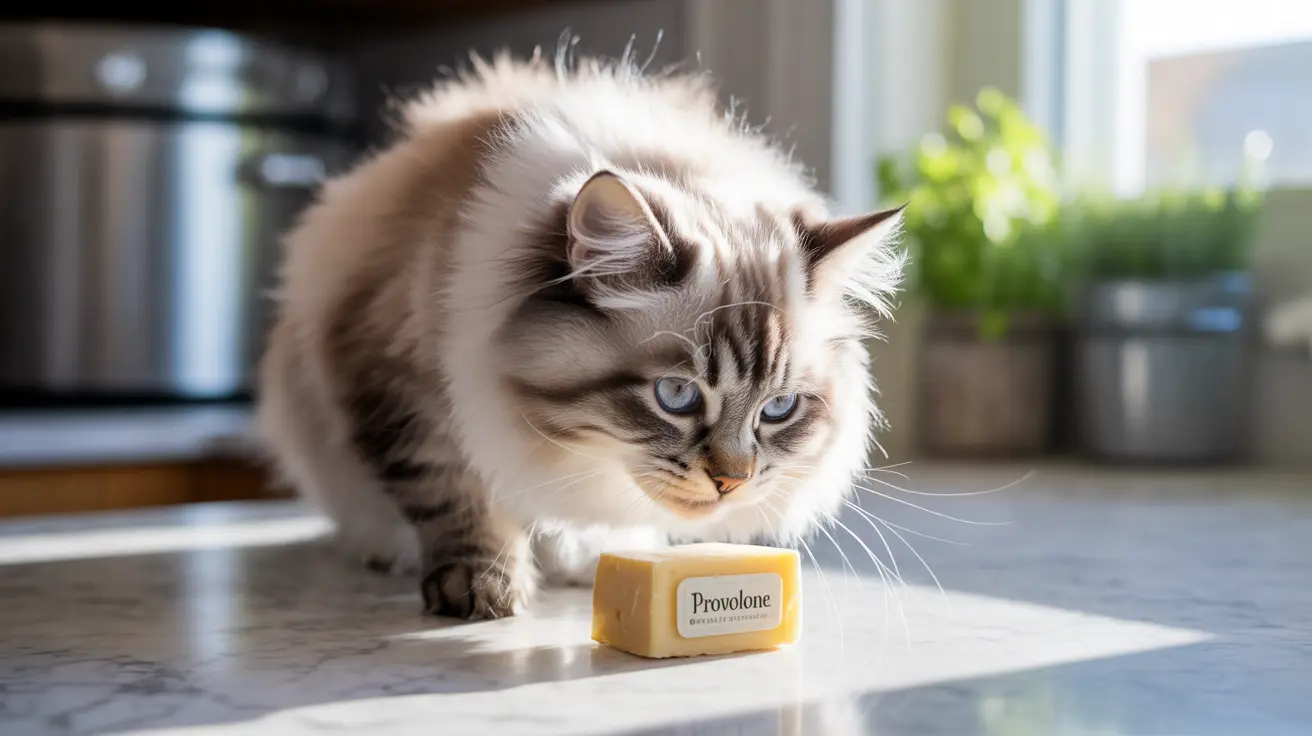Understanding Cats and Cheese
Many cat owners wonder about sharing their favorite foods with their feline friends, and cheese often tops the list of questionable treats. While provolone cheese isn't toxic to cats, there are important considerations before offering this dairy product to your pet.
Understanding the relationship between cats and dairy products, particularly cheese like provolone, is crucial for maintaining your pet's health. Let's explore whether provolone cheese can be a safe occasional treat for your feline companion.
The Truth About Cats and Dairy Products
Despite popular belief and media portrayals, most adult cats are lactose intolerant. After weaning, cats naturally lose the enzyme needed to digest lactose, making dairy products potentially problematic for their digestive system.
Provolone cheese, while lower in lactose than many other dairy products, still contains this milk sugar that can cause digestive issues in cats. However, its firmer texture and lower lactose content make it one of the relatively safer cheese options if given in minimal amounts.
Safety Considerations for Feeding Provolone to Cats
When considering provolone cheese for your cat, several factors come into play:
- Fat content: Provolone is relatively high in fat, which can lead to weight gain
- Salt content: Excessive sodium can be dangerous for cats
- Portion size: Should be extremely limited (no larger than a small die)
- Individual tolerance: Some cats may handle small amounts better than others
Proper Serving Guidelines
If you decide to offer provolone cheese to your cat, follow these guidelines:
- Start with a tiny piece (smaller than a pea)
- Observe your cat for 24 hours for any adverse reactions
- Limit treats to no more than 10% of daily caloric intake
- Never use cheese as a regular treat or meal replacement
When to Avoid Provolone Cheese
Some cats should never be given provolone cheese, including:
- Cats with known dairy allergies or sensitivities
- Overweight or obese cats
- Cats with kidney disease or other health conditions
- Kittens under 12 weeks old
Healthier Alternatives to Cheese
Instead of provolone cheese, consider these cat-friendly treats:
- Commercial cat treats specifically formulated for felines
- Small pieces of cooked, plain chicken or turkey
- Specialized cat treat tablets for vitamin supplementation
- Commercial pill pockets for medication administration
Frequently Asked Questions
Can cats safely eat provolone cheese, and how much is okay to give?
Cats can safely eat small amounts of provolone cheese occasionally, but portions should be limited to a piece no larger than a die. It's best to offer it rarely and only as a special treat.
What are the symptoms of lactose intolerance in cats after eating cheese?
Common symptoms include vomiting, diarrhea, stomach upset, gas, and abdominal discomfort. If you notice any of these signs, discontinue cheese immediately and consult your veterinarian.
Which types of cheese are safest for cats and which should be avoided?
Harder, aged cheeses like provolone, cheddar, and Swiss are generally safer due to lower lactose content. Avoid soft cheeses, blue cheese, and processed cheese products, which contain higher lactose levels and potentially harmful additives.
Why is cheese not a natural or healthy treat for cats despite being non-toxic?
Cats are obligate carnivores, meaning their digestive systems are designed to process meat, not dairy products. They lack the necessary enzymes to properly digest lactose, making cheese an unnecessary and potentially problematic treat.
Are there specific risks associated with feeding processed or flavored cheeses to cats?
Yes, processed and flavored cheeses often contain additives, spices, and ingredients like garlic or onion powder that are toxic to cats. They also typically have higher salt content and artificial ingredients that can be harmful to feline health.
Conclusion
While provolone cheese isn't strictly toxic to cats, it's best to err on the side of caution. If you choose to offer it as a treat, do so sparingly and watch for any adverse reactions. Remember that your cat's health and well-being should always come first, and there are many safer, more appropriate treats available specifically designed for feline consumption.






